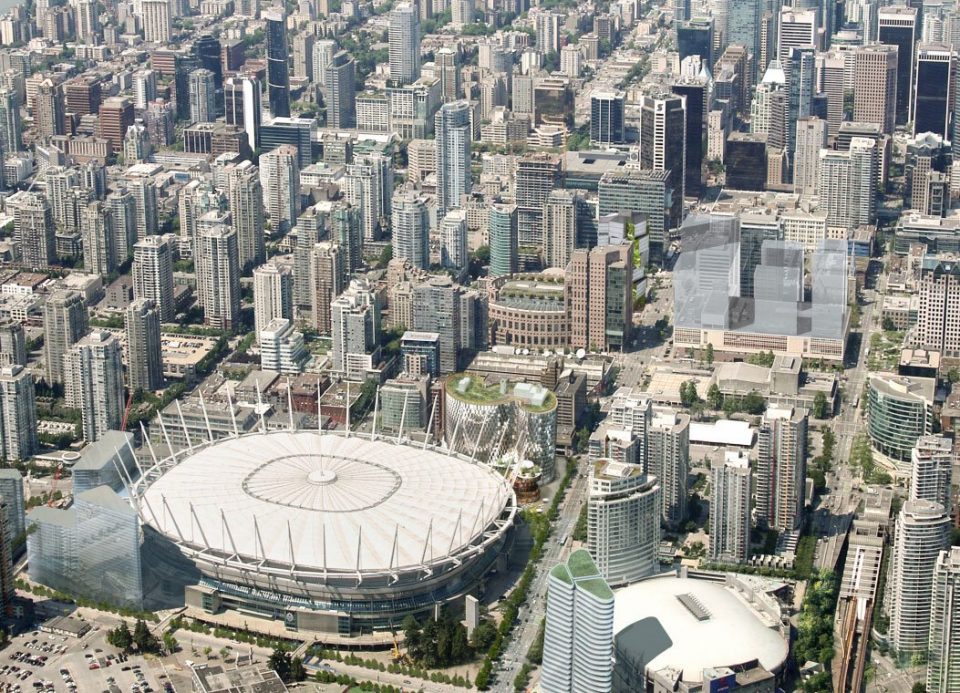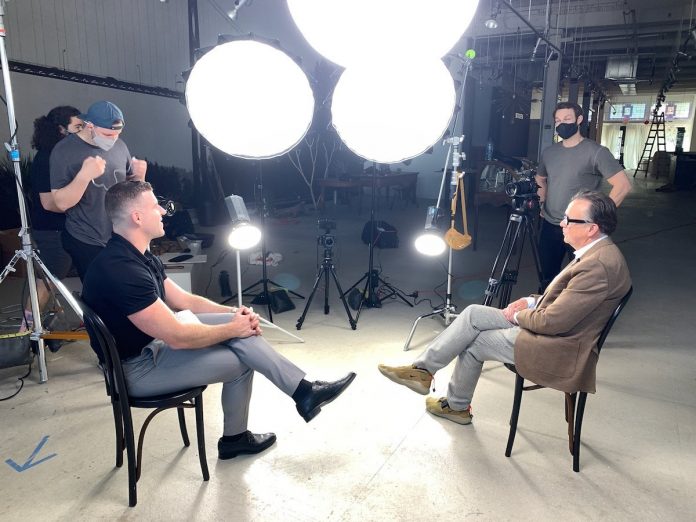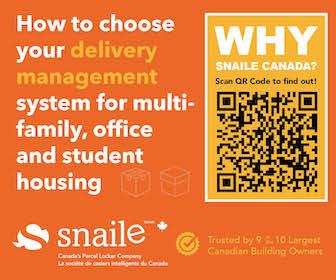The West Haven Group and urbanYVR recently joined forces in a wide-ranging interview with Reliance Properties President and CEO, Jon Stovell — one of Vancouver’s most prominent developers. We wanted to get his perspective on the future of Vancouver’s commercial and residential real estate markets, as well as how city policies are impacting the delivery of new housing in an affordability crisis.
Stovell offered invaluable insights on where Vancouver is headed, and the challenges we need to overcome to reach our full potential and accommodate hundreds of thousands of new residents in the coming decades.
Video: In conversation with Jon Stovell
A “coral reef” of city development policy
“I think we’ve arrived at an unfortunate spot in Vancouver’s planning history,” says Stovell. “There’s been a lot of volatility in the Director of Planning position — you have to go all the way back to Larry Beasley to find a stable and productive planning leadership regime. I don’t really blame these planners or their staff — you’ve just got city council after city council pumping out development-related policy.”
“It’s now reached the point where you go into the city planning department with a great idea — for example our workforce housing project at 1075 West Georgia, they don’t really have the culture or maybe the opportunity to look back at the macro pros and cons of a project like that — they just go into this checklist mode — into a process into finding out why you can’t do what you’ve proposed, instead of standing back and looking at it holistically,” adds Stovell.
He says there’s been several positive changes recently, including removing the requirement for letters of enquiry for rezoning and the Mayor asking for a list of housing projects that are being held up by city policies. He’s optimistic these changes will see more projects come to fruition.
“I think it’s going to be a revolutionary time in Vancouver, and I think you’re going to see a lot of rezonings coming forward, into the public realm, that haven’t really been through that two-year long staff filter.”

Stovell says that at the political level, there is strong support — with city council turning down very few of the projects that come before them — but there many projects caught up in policy review that never see the light of day.
“When the mayor asked for the recent list [of projects], there were something like 10,000 rental homes in various projects around the city that couldn’t move ahead because of policy problems or policy conflicts,” he says.
“That really is the big problem right now. The city is doing well politically — they’re signalling that they want to solve the affordability crisis, but at the regulatory and bureaucratic level, they haven’t been able to push that new set of values through, and figure out how to tell their staff, it’s OK, if something doesn’t tick every box, just bring it forward and let the decision makers see whether to help it or not.”
Neighbourhood plans too rigid
Stovell says the various neighbourhood plans throughout the city need to be written in a way that allows for future changes as the city evolves.
“The plans take a long time to do and tend to be a bit too rigidly interpreted and don’t adapt easily over time,” he says. “People feel very invested in them and want to defend them, planners want to defend them, and politicians are reticent to change them, even when they know they should be changed, because it seems politically risky.”
Stovell says it’s remarkable how many people in the planning regime and at the executive level of municipalities don’t believe in the concept of supply and demand.
“The problem in Vancouver is that they gradually approve additional density in an area like Cambie Corridor or Grandview-Woodland, it takes years to do the plan, they tentatively produce a little bit of extra density, with the whole market waiting and watching that plan. As soon as they produce that density — it’s all coming, it’s all built, and the prices inflate quickly.”

Stovell says the best example of Vancouver getting the approach right is when former Vancouver Mayor, and later premier, Gordon Campbell, rezoned the entire Downtown South neighbourhood on one fell swoop, as opposed to individual rezoning applications.
“It took the whole area from 1 FSR to 5 FSR and led to a 20-year development cycle of all of the condominiums you see along Richards, along Homer — relatively affordable at the time.”
Stovell says it’s an example of creating enough new supply that there was a sustained period of increased affordability of new housing for the city to grow — something that hasn’t been done at that scale since.
“The current Broadway Corridor Plan has been completely rejected by the development industry as being far too tentative in terms of additional supply, particularly with the transit investments that are being made.”
Things have to change in your community
Stovell says the city is overly cautious around its consultation process when adding new density.
“They’ll go into a community like Grandview-Woodland, and say ‘what do you want to change about your community?’ and people come out and say ‘I don’t want anything to change’. What they should do is say, ‘things have to change in your community — every community in the city needs to accommodate 5,000 new residents in the next 20 years — how do you want to do it?”
“What we really need is the province to say to cities across B.C., ‘you have to land this many new housing units in your community’,” says Stovell. “But there’s no mandatory growth targets required by the provincial government of municipalities in B.C. — it really is a leadership issue.”
Jon Stovell: “Vancouver, it’s time to grow up”
“It’s a double meaning — we need to get a lot more vertical with our real estate, in order to accommodate growth, and we also need to grow up our attitude. We are too worried about growth — we are stuck between a museum town and a real global city,” says Stovell.
Stovell says there are questions around whether or not Vancouver really is ready to embrace its role as a global city.
“The next five to ten years are really going to be a pivotal time for Vancouver — where it’s either going to get stuck as this postcard place, or whether or not we really become one of the world’s global cities.”

More office towers planned for downtown
Reliance maintains a roughly 50/50 split between commercial and residential projects, and some of their biggest developments combine both, like Burrard Place, where they partnered with Jim Pattison Developments on two residential towers: the 54-storey One Burrard Place which is nearly complete, and 2 Burrard Place, which launches later this month. The Offices at Burrard Place, at 1280 Burrard, are currently leasing with occupancy planned for later this year.
The 13-storey, AAA office tower offers over 137,000 square feet of space. Stovell says Vancouver is home to impressive biotech innovation work, but many companies run into challenges due to Vancouver’s zoning bylaws that don’t allow these labs to exist in downtown towers. However, he says the city recently allowed for an amendment that will allow lab use in their Burrard Street office tower.
“This is a rapidly growing part of our technology sector, and it’s an amazing industry to bring into the city because of its connections to UBC, and the cultural capital of science,” says Stovell.
Possible hotel in the works at Robson and Hornby
Stovell says they also have plans for a two office tower scheme in the 500-block of Richards Street, as well as plans for their newly-acquired property at Hornby and Robson (815 Hornby), which could be a residential/office mixed-use, or possibly a new hotel. The building’s ground floor retail is currently home to several high-end shops including Salvatore Ferragamo.
Jon Stovell: A passion for design
Reliance Properties has been involved in the development, ownership and management of commercial and residential real estate for over 50 years. Stovell is currently managing the development of over one billion worth of new projects, in addition to managing an investment mixed property portfolio in excess of $600 million.
Stovell says the company is passionate about design and innovation, and tries to go above and beyond what’s expected and required with each project.
“We try to create award-winners that make money — and we’ve had many. If we can have a project that’s profitable, and works for the people living and working in it, and wins an award for design — that’s the triple bottom line.”
Learn more about Reliance Properties at relianceproperties.ca
This interview with Jon Stovell was edited for length and clarity.




